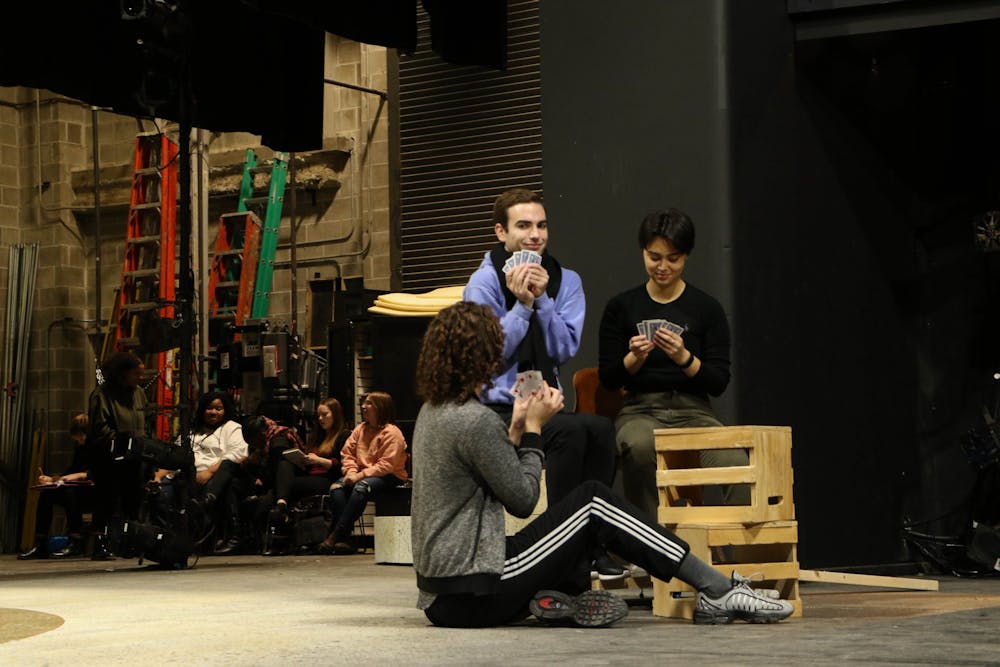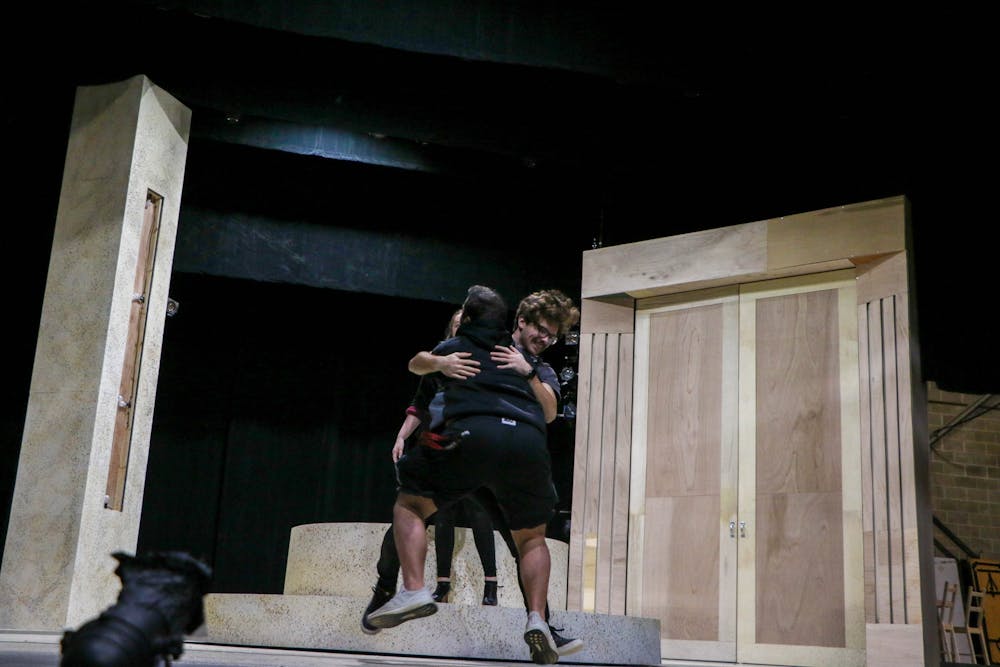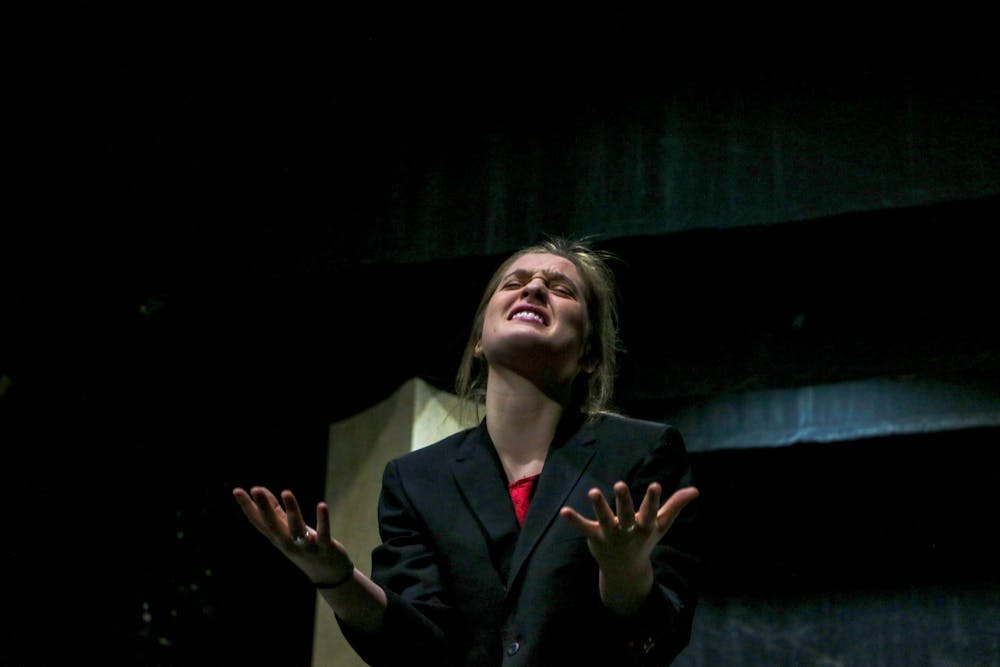For seven years, junior musical theater major Gillian Lieberman spent half of her days at school and the other half on the stage.
“There was Broadway all around me all the time from a very young age,” Lieberman said. “I must have seen my first Broadway show when I was a couple years old, and the [age] limit is 4 [years old]. That's as young as you can be [to attend a Broadway show].
“I started taking voice and acting lessons when I was 8 years old because I was like, ‘Mom, I want to be on Broadway.’ I auditioned for professional performing arts schools in New York City … I would go to academic classes for half the day, then do theater and then do my after school programs with dancing. I was deep in it.”
Now, Lieberman is playing Olivia, a main role in the Department of Theatre and Dance’s upcoming production of Shakespeare’s “Twelfth Night.”
“Being in New York, the best experience you can get would not be from a university. It would be from going to auditions,” Lieberman said. “I know if I were [in New York], I would be too tempted to pursue those opportunities and take those classes and not really tend to a college degree. So, I removed myself from all of that opportunity to pursue a college education.”
“Twelfth Night” opens at 7:30 p.m. Feb. 7 in University Theatre. Additional performances will be 7:30 p.m. Feb. 8, 11, 12 and 13 and 2:30 p.m. Feb. 9. The cost to attend is $18 for the general public and $15 for faculty, staff, students and seniors. Tickets can be purchased at Ball State’s Box Office or online.
Lieberman said her and the play’s cast and crew will take a contemporary approach to the traditional Shakespearean comedy by eliminating the play’s gender roles and implementing a modern way of speaking. The production will also be set in the 1920s instead of the Shakespearean wardrobe and sets.

Members of "Twelfth Night" wait while the cast practices Jan. 28, 2020, at University Theatre. Sophie Nulph, DN
“We’ve taken a lot of the gender language out of the play and made more of a neutral, androgynous kind of thing,” said Alan Belmont, freshman acting major who plays Sebastian in “Twelfth Night.” “You know what you’re saying, so just say the words the way you would say them normally as a person. We’re trying not to make this a Shakespeare play. We’re trying to make this like we’re doing a Shakespeare play, but it’s 2020, so we’re going to do it in the perspective of what people in 2020 think.”
During rehearsals for “Twelfth Night,” Lieberman said, the cast did “Italian runs” where they spoke faster than they normally would to keep the energy of the scene up and the play moving so the audience wouldn’t get bored easily, like some do watching a Shakespeare play.
“The circumstances these characters are put in — every moment is crucial and very high stakes,” Lieberman said. “With this heightened stuff, you have to reach it. You have to go up. [Shakespeare’s characters don’t] come down to meet you. You have to every single day rev yourself up ... In the University Theatre and having so much space in front of you … you have to spread your wealth. When we were in our rehearsal room, I was like, ‘I am shouting my line.’”

Jeremiah Smith, Maya Vagle and Mario Noto rehearse one of the scenes of Shakespeare's "Twelfth Night" Jan. 28, 2020, at University Theatre. Sophie Nulph, DN
Although the cast and crew have made modern changes to Shakespeare’s “Twelfth Night,” Lieberman said, the actors won’t be using microphones because Shakespeare didn’t do so with his original performances. Instead, the actors will fill University Theatre’s “whole space with [the play’s] language” in addition to their modern twists on the play.
“If you want to know why there’s a giant penguin in Shakespeare’s “Twelfth Night” set in the 1920s with contemporary music and a penguin,” Lieberman said, “Come see it to find out.”
Contact Sophie Nulph with comments at smnulph@bsu.edu.





The Daily News welcomes thoughtful discussion on all of our stories, but please keep comments civil and on-topic. Read our full guidelines here.